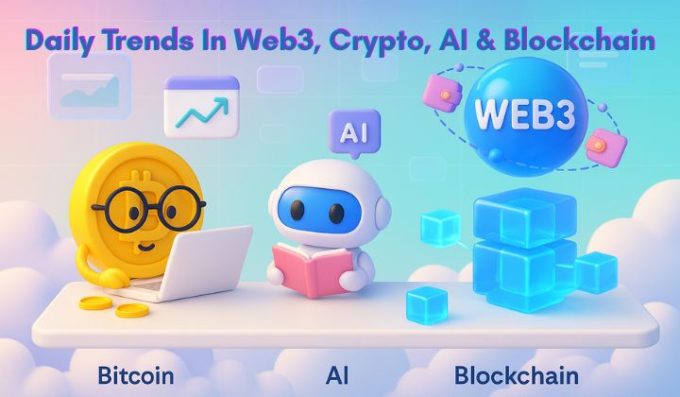DeFi, the buzzword that has taken the cryptocurrency world by storm, has emerged as the epicentre of the recent crypto bull run. The cryptocurrency market will transform significantly in 2023 as it aims to stabilize and secure investors’ trust by embracing traditional market features. The year will uniquely amalgamate decentralized financial systems with regulatory frameworks, insurance policies, and innovative asset classes. The upcoming trends in DeFi promise to create an exciting middle ground that balances decentralization and regulation.
Are you curious to know more about DeFi, its working mechanism, and its relevance in today’s market? Then, let’s delve deeper and explore the fascinating world of Decentralized Finance.
What is DeFi?
DeFi, the futuristic financial technology, has become the talk of the town as it leverages secure distributed ledgers reminiscent of the ones used in cryptocurrencies. While centralized financial institutions like banks and brokerages in the United States are bound by regulations set by the Federal Reserve and Securities and Exchange Commission (SEC), DeFi challenges the status quo by enabling individuals to conduct peer-to-peer digital transactions.
One of the most significant advantages of DeFi is the elimination of exorbitant fees that traditional financial institutions charge for using their services. With DeFi, individuals can keep their money in a secure digital wallet, transfer funds in a matter of minutes, and access financial services from anywhere with an internet connection.
Decentralized finance eliminates the intermediaries by enabling merchants, businesses, and individuals to conduct financial transactions using emerging technology. The year 2023 is expected to witness groundbreaking advancements in connectivity, security protocols, software, and hardware through peer-to-peer financial networks.
The distributed financial databases in DeFi allow individuals to trade, lend, and borrow using software that records and verifies financial transactions. The consensus mechanism further ensures the authenticity of transactions by collecting and aggregating data from multiple users.
DeFi aims to create a financial system that empowers anyone, irrespective of location or identity, to access financial services without any centralized model. With tailored trading services and personal wallets, DeFi applications give users more control over their money, making them the masters of their financial destiny.
How does DeFi Work?
Decentralized finance (DeFi) operates on the same blockchain technology as cryptocurrencies, using a secure and distributed ledger or database. The blockchain network is powered by dApps or decentralized applications that help process transactions and keep the blockchain running.
Transactions in DeFi are recorded in blocks that other users on the network verify. Once the verifiers agree on a transaction, the block is sealed, encrypted, and a new block is created, containing information about the previous block. These blocks are “chained” together by the information in each subsequent block, giving rise to the term “blockchain.”
Since the information in previous blocks cannot be altered without affecting the entire chain, the blockchain is immutable and tamper-proof, thanks to its robust security protocols. This inherent security feature of the blockchain makes DeFi a trusted and reliable financial system that can be used to carry out a wide range of transactions with utmost ease and transparency.
The potential of DeFi in 2023
As decentralized finance (DeFi) gains popularity, investors are keen to know if it’s worth investing in DeFi in 2023. DeFi operates on the principle of peer-to-peer (P2P) financial transactions, where individuals can exchange cryptocurrency for goods or services without intermediaries.
In DeFi, P2P lending allows borrowers to access loans from lenders who agree to their terms through an algorithm. Transactions are processed through decentralized applications or dApps and are recorded on the blockchain for transparency and accountability.
The P2P model of DeFi has the potential to revolutionize traditional finance by reducing the need for intermediaries, lowering transaction costs, and increasing the speed of transactions. Moreover, with a growing number of DeFi applications, investing in this technology could provide significant returns in the future.
However, like any investment, DeFi carries risks, and investors should conduct thorough research and analysis before investing. Nevertheless, with its innovative approach to finance, DeFi may well be the future of financial transactions, and those who invest wisely could reap significant rewards.
You need to login in order to Like














